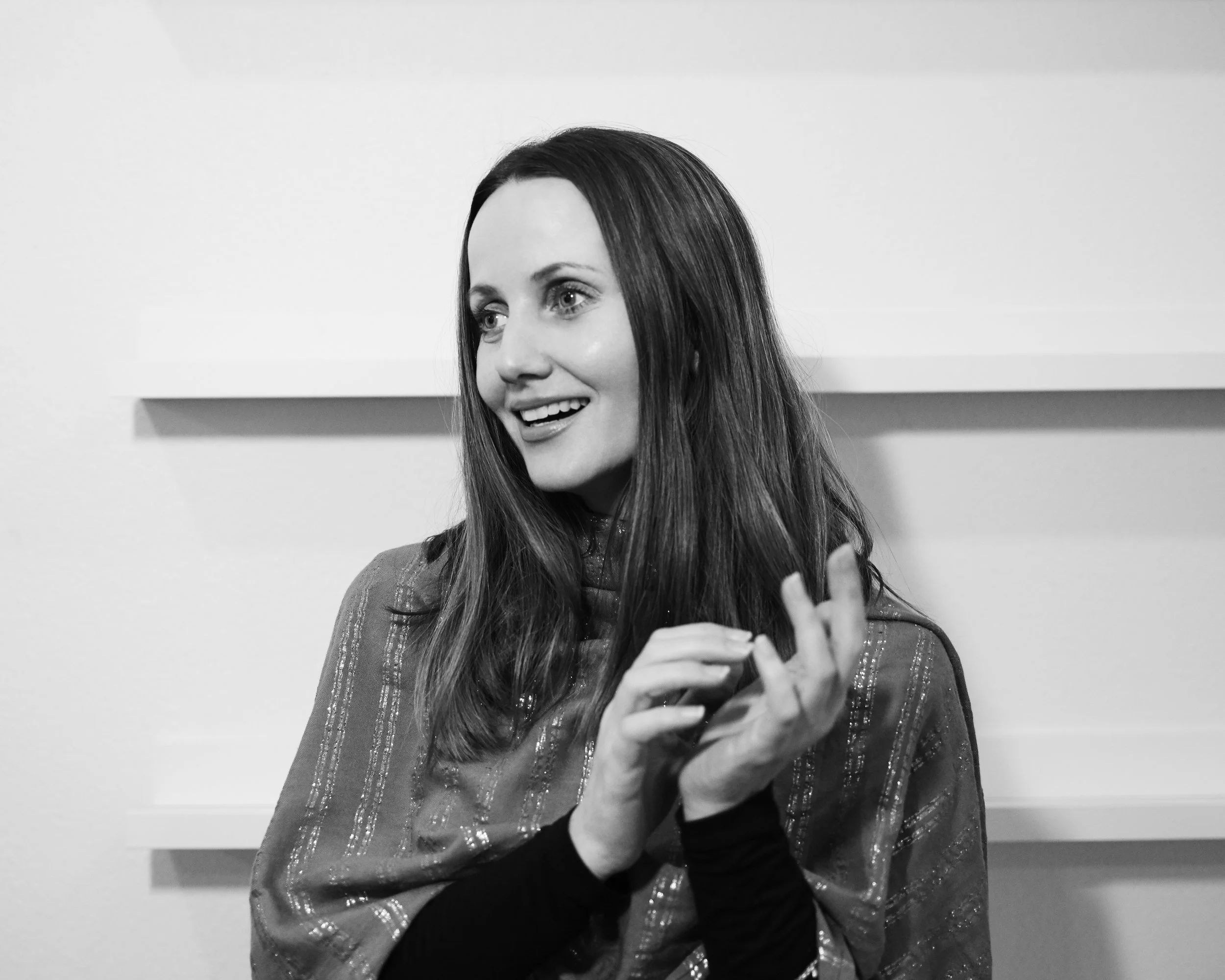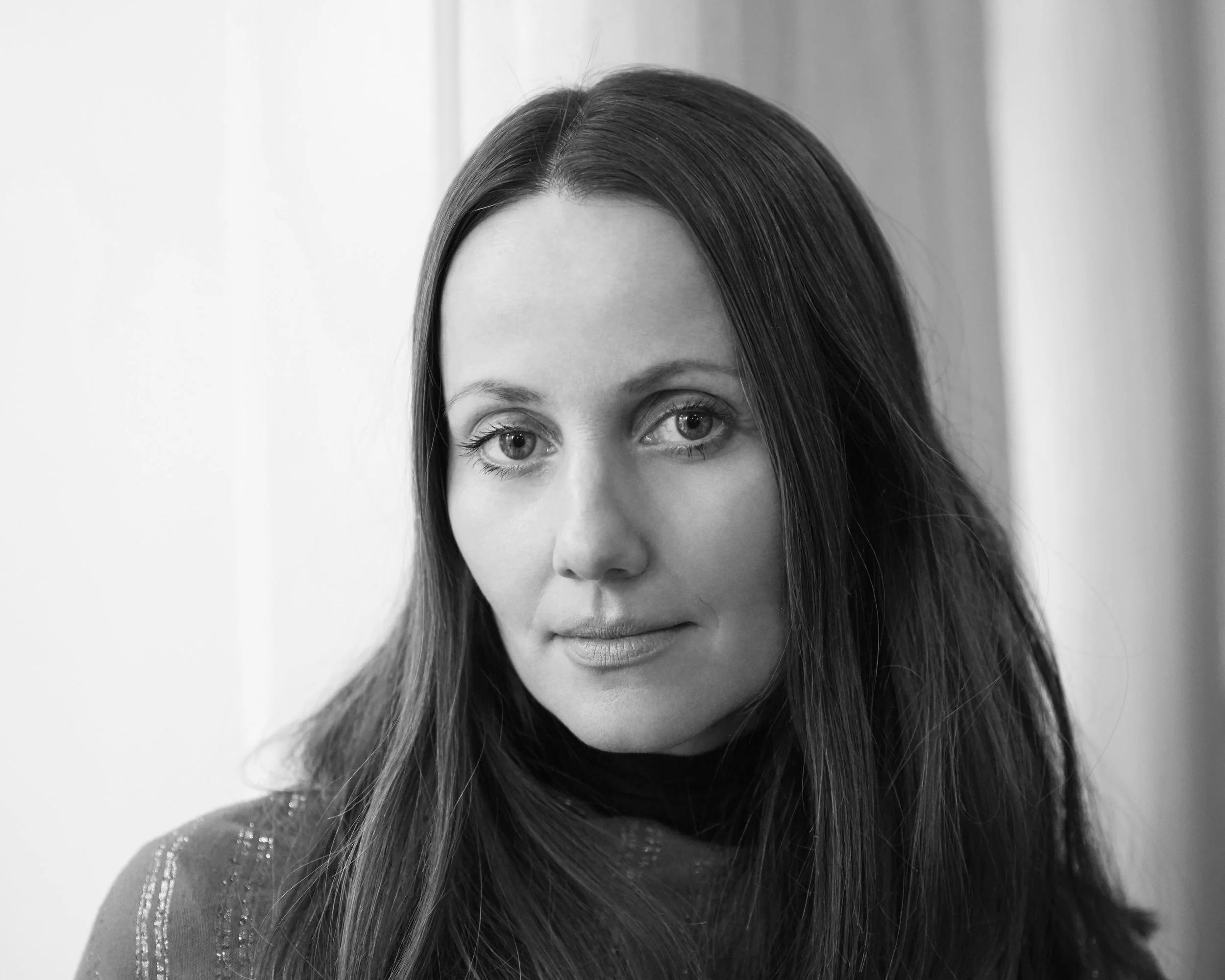
Denmark’s first female imam on creating new narratives for women and Islam within a modern world
“I’ve only had five hours sleep in the last two days,” Sherin Khan says, explaining her lateness to this interview. Scheduled to meet at her female-led mosque in central Copenhagen, her last appointment ran over - an important meeting finalising the logistics of a documentary film to be made about her work empowering young women in Denmark and beyond.
She rushes over to say hello and ushers me into a small office, where drinks and snacks are served. A young assistant works nearby - an aide to help translate if needed (Sherin rarely does, her English is near perfect). She sits for the interview but can scarcely rest, as preparations must be made for two self-help groups happening at the centre later in the afternoon. Volunteers come in and out to confirm details with her, her phone rings intermittently and she needs to take a mid-interview break to check emails and get updates from her team. I’ve caught her on a busy day but throughout she is polite and friendly, apologising for any interruptions and making a point to introduce me to all staff on hand.
When things settle a bit, Sherin is excited to share news of the projects she has been working on. We are here to talk about the Mariam Mosque - the first female-run mosque in Scandinavia and one of a handful across the globe. However, still buzzing from her last meeting, she is keen to begin the interview with what she describes as her “heart-child”, the Exitcircle.
THE EXITCIRCLE
In 2014, Sherin founded Denmark’s first self-help group for women and girls subjected to psychological abuse and control. “It’s a 12 week programme [where] we give women (although we have some men’s groups now) tools to tackle violence,” she explains. The inspiration for the group came after Sherin combatted her own experiences of psychological violence within a previous, personal relationship. “Because I experienced that myself, I was really angry and ambitious to create these self-help groups all over Denmark.” An ambition made stronger by the loneliness she describes feeling, struggling to find solace in friends or family who did not quite understand the impact of a hidden violence that leaves no physical scars. She needed to connect with others who shared similar experiences but where there were shelters supporting those who had been in physically abusive relationships, no such space dedicated to addressing only psychological abuse existed in Denmark. So she created one.

Organising these groups has become much of Sherin’s daily work, as there are now seven Exitcircle groups offering peer support and psychological guidance for approximately ten women per group. A dramatic growth in numbers that reflects the increasing need to address issues of emotional abuse throughout the country. According to the European Union Agency for Fundamental Rights, one-third of women across Europe have reported experiencing abuse from a partner, where 70,000 women are subjected to psychological violence in Denmark alone; 45% of them aged between 18-29. “It’s like an epidemic,” Sherin comments. “It’s within every culture, within any religion, within any society, in the ghetto, in the upper class - it’s everywhere.”
Last year, the gender equality advocacy organisation, Danner, found that 41% of women at crises centres across Denmark were immigrants, where factors such as isolation, language barriers and lack of information regarding options for support or legal rights make them particularly vulnerable to abuse. Yet, as Denmark has long had an antagonistic relationship with immigrant groups, particularly the 5% of the population made up by Muslim communities, Sherin firmly challenges Western preconceptions that abuse is more prevalent in ethnic communities. As critics label Muslim women some of the most repressed in contemporary society, Sherin makes a point to emphasise that six out of ten attendees at the Exitcircle are native Danes. She is adamant that such abuse is a universal plague which occurs in any culture or religion. “Psychological violence and religious control [is] not something you find only within Muslim communities. Honour and shame are not concepts linked to the Muslim community, it’s [in] any community.”
MARIAM MOSQUE
Founded two years after the Exitcircle, the Mariam Mosque is housed in the same co-working space, and while they act as separate initiatives, they hold a similar fundamental aim: to challenge and deconstruct patriarchal and suppressive structures. For the Mariam Mosque, that involves offering daily Islamic spiritual care, managing marriages and divorces and Friday prayers conducted exclusively for women and directed by six female imams. Sitting above a fast-food outlet on a busy city-centre street, the space has become a reflective and supportive hub for a multitude of diverse, young women, of which Sherin feels is a great example of the “modern mosque”, one that serves as many people as possible.
“Female imams is not a new phenomenon. It’s not a reformation, we’re going back to roots and to the classical tradition and sources.”
She credits the idea for such a fluid space as having been influenced by her childhood in Denmark. “I was born in-between Christianity and Islam, the East and the West, the village and the city. So since I was very young, I believe I got some kind of flexibility. I used that in everything that I do.” Witnessing her Syrian father and Finnish mother manage a happy and loving marriage, despite their religious and cultural disparities, cultivated a deep desire within Sherin, over the years, to unite differences for others - an ideal that threads all of her work to date and thrust her into a life of activism.
The vision for a mosque with female imams manifested in 1999, while Sherin was writing her thesis on Sufism and Islamic activism in Damascus. Sitting in the Abu Nour Mosque, listening to the grand mufti giving his sermon, she thought to herself, “what would it be like if he was a woman?”. Returning to Copenhagen in 2001, and longing to connect with a religious community that reflected her approach to Islam, she founded an association called Critical Muslims, advocating for both the acceptance of female imams and Islamic secularism as a dialogue between religion and politics.
She got married, had four children, wrote four books on Islam, religion and society, and in 2015 felt the time was right to start developing upon her original idea. Recruiting women with PhDs or a higher level of knowledge on Islam, and bringing together a group of activists who shared the same passions, Sherin founded a new mosque in Copenhagen, based on the principles of Sufism. This mosque would implement women’s rights in Islam and fight the growing climate of Islamophobia. Named after Maria, the mother of Christ who holds a similarly titled chapter in the Qur’an, the mosque would support interfaith marriages, give women the right to divorce and ban polygamy. Gender equality is the ultimate goal.

CONTROVERSY & OPPOSITION
Naturally, the mosque’s female focus has been a source of concern for those who critique the blurring of traditional lines and view the separation of genders in religious spaces as working to promote inequality. However, mosques are traditionally seen as places where men gather for collective prayer and discussion, while women are generally encouraged to pray at home or in private. “Very few women come for the Friday prayer because they are so male-dominated,” Sherin says. As such, the Mariam Mosque has created a space for women to feel validated as they explore and deepen their faith, despite the heavy opposition. “When you develop from a movement into a mosque institution, you become more powerful because you can do things systematically,” Sherin explains. “I was prepared because I knew that when you change the structure, you change the power balance and of course people will become upset.”
However, Sherin was not prepared for the opposition that came from within her own family. “I remember my father when he found out that I was one of the imamahs, he called me and said, ‘you have to denounce the title’. I told him I can’t. He didn’t speak to me for a month but now he supports me fully.” She empathises with the concern from her father. Labelling him as a feminist, she recalls memories of him quoting Ibn ‘Arabi who is known for saying that the perfect man is a woman. And as a feminist, he did initially support his daughter’s idea to promote gender equality. However, as news of the mosque spread worldwide, and pressures from family in Syria mounted, he understandably began to worry.
Where her father slowly came around, her husband, at the time, (a Danish man with Pakistani roots) gave her an ultimatum: “choose between your family or continuing the project”. It was not so much opposition to the creation of the mosque per se, but rather a fear of the implications that his wife acting as the face of such controversy would have for their children. Although Sherin continued with her mission, she worries for them too. “My daughter Aisha, who is 14, she tells me sometimes, ‘why can’t you just find a normal job, I just want a normal mother who comes home from work’,” Sherin mentions. “We are still a family but we are divorced, so [the children] also had to pay a high price for this journey.” While she admits that the last three years have been hard, she hopes that her children understand that something is at stake and are proud of the stance she is taking to implement change. She recalls a story of her youngest daughter, when five years old, describing what an imam was to a school friend, as a particular highlight, “don’t you know, an imam is a woman who is doing great things.”
Read the rest of the interview in POSTSCRIPT Issue 2.
